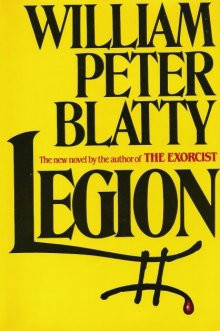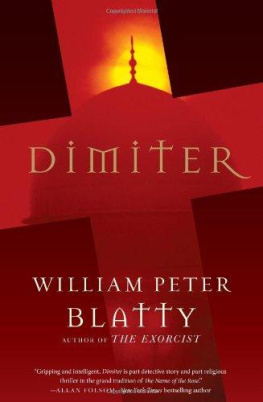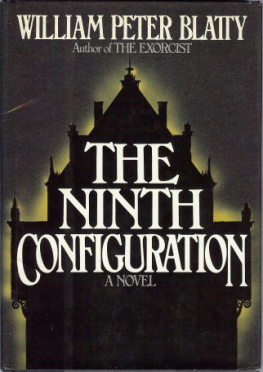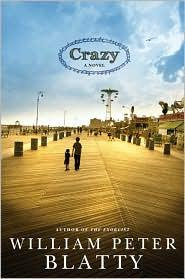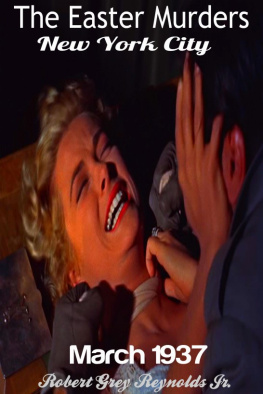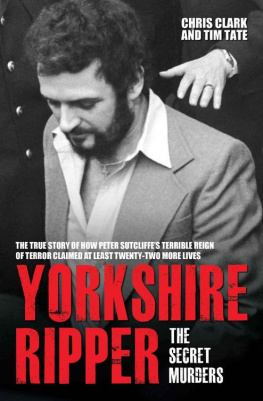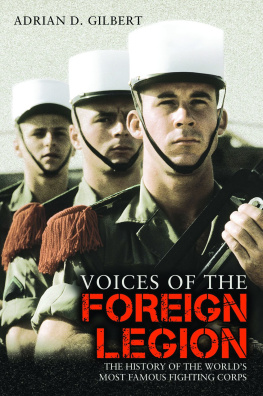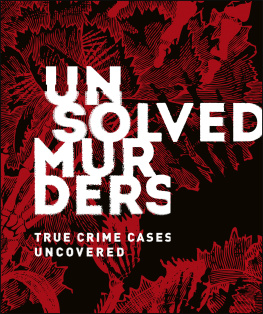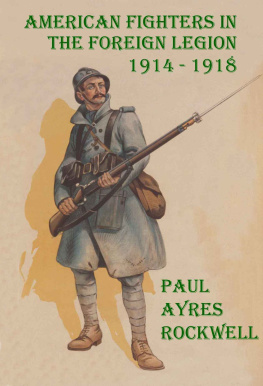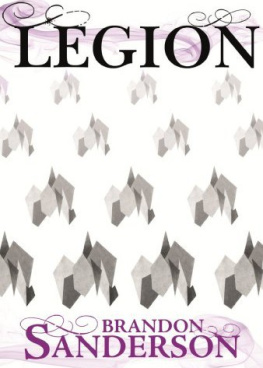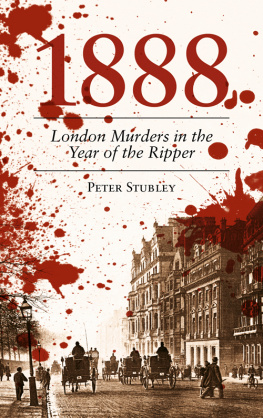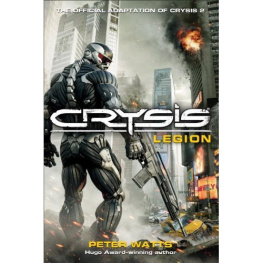Legion, for we are many.
HE THOUGHT OF DEATH IN ITS INFINITE GROANINGS, OF Aztecs ripping out living hearts and of cancer and threeyearolds buried alive and he wondered whether God was alien and cruel, but then remembered Beethoven and the dappling of things and the lark and Hurrah for Karamazov and kindness. He stared at the sun coming up behind the Capitol, streaking the Potomac with orange light, and then down at the outrage, the horror at his feet. Something had gone wrong between man and his creator, and the evidence was here on this boathouse dock.
I think theyve found it, Lieutenant.
Excuse me?
The hammer. Theyve found it.
The hammer. Oh, yes.
Kindermans thoughts found a grip on the world. He looked up and saw the crime lab crew on the dock. They were gathering with eyedropper, test tube and forceps; remembering with camera, sketchpad and chalk. Their voices were hushed, mere whispered fragments, and they moved without sound, gray figures in a dream. Nearby, the blue police dredgeboats engines churned with the mornings completion of dread.
Well, I guess were almost finished here, Lieutenant.
Are we really? Is that so?
Kinderman squinted against the cold. The search helicopter was skimming away, throbbing low above the mudbrown darkness of the waters with its lights blinking softly red and green. The detective watched it growing smaller. It dwindled, in the dawn like a fading hope. He listened, inclining his head a little; then he shivered and his hands began to dig deeper into the pockets of his coat. The shrieking of the woman had grown more piercing. It clawed at his heart and the twisted forests silent on the banks of the icy river.
Jesus.
Kinderman looked at Stedman. The police pathologist was down on one knee beside a sheet of soiled canvas. Something lumpy lay under it. Stedman was staring at it, frowning in concentration. His body was motionless. Only his breath had life; it came frosty and then vanished in the hungry air. Abruptly he stood up and looked at Kinderman oddly. You know those cuts on the victims left hand?
What about them?
Well, I think theyve got a pattern.
Is that so?
Yes, I think so. A sign of the zodiac. I think Gemini.
Kindermans heart skipped a beat. He drew a breath. Then he looked at the river. A Georgetown University crew team scull slipped silent and slim behind the bulky stern of the dredge. It reappeared, and then vanished underneath Key Bridge. A strobe light flashed. Kinderman looked down at the canvas throwsheet. No. It couldnt be, he thought. It couldnt be.
The pathologist followed Kindermans gaze and his hand, blotched red from the freezing air, pulled the folds of his coat collar tighter together. He regretted not wearing his scarf that day. Hed forgotten. Hed dressed in too much of a hurry. What a weird way to die, he said softly. So unnatural.
Kindermans breathing was emphysematous; white vapor wisped at his lips. No death is natural, he murmured.
Someone had created the world. Made sense. For why would an eye want to form? To see? And why should it see? In order to survive? And why should it survive? And why? And why? The childs question haunted the nebulae, a thought in search of its maker that cornered reason in a dead-end maze and made Kinderman certain the materialist universe was the greatest superstition of his age. He believed in wonders but not in the impossible: not in an infinite regression in contingencies, or that love and acts of will were reducible to neurons firing in the brain.
How long has the Gemini been dead? asked Stedman.
Ten, twelve years, answered Kinderman. Twelve.
Are we certain that hes dead?
He is dead.
In a sense, thought Kinderman. Partly. Man was not a nerve net. Man had a soul. For how could matter reflect upon itself? And how was it Carl Jung had seen a ghost in his bed and confession of a sin could cure a bodily illness and the atoms of his body were continually changing, yet each morning he awakened and was still himself? Without an afterlife, what was the value of work? What was the point of evolution?
He is dead on the bias, Kinderman murmured.
What was that, Lieutenant?
Nothing.
Electrons traveled from point to point without ever traversing the space between. God had His mysteries. Yahweh: I shall be there as who I am shall I be there. Okay. Amen. But it was all so confusing, such a mess. The creator made man to know right from wrong, to feel outrage at all that was monstrous and evil; yet the scheme of creation itself was outrageous, for the law of life was the law of feeding in a universe crammed from end to end with exploding stars and bloodied jaws. Avoid being food and there was always a chance you would die in a mudslide or in an earthquake or in your crib or you might be fed rat poison by your mother or fried in oil by Genghis Khan or be skinned alive or beheaded or suffocated just for the thrill of it, for the fun of it. Fortythree years on the force and he had seen it. Hadnt he seen it all? And now this. For a moment he attempted familiar escapes: imagining the universe and everything in it were merely thoughts in the mind of the creator; or that the world of external reality existed nowhere but in his own head, so that nothing outside of him actually suffered. Sometimes it worked. This time it didnt.
Kinderman studied the lump beneath the canvas. No, it wasnt this, he thought: not the evil that we choose or inflict. The horror was the evil in the fabric of creation. The songs of the whales were haunting and lovely but the lion ripped open the stomach of the wildebeest and the tiny ichneumonids fed in the living bodies of caterpillars underneath the pretty lilacs and the lawns; the blackthroated honey guide bird chattered gaily but it laid its eggs in alien nests and when the baby honey guide hatched it immediately killed its foster brethren with a hard, sharp hook near the tip of its beak, which it promptly shed upon completion of the slaughter. What immortal hand or eye? Kinderman grimaced at an awful recollection of a hospital psycho ward for children. In a room there were fifty beds with cages, each with a shrieking child inside. Among them was an eightyearold whose bones had not grown since infancy. Could the glory and beauty of creation justify the pain of one such child? Ivan Karamazov deserved an answer.
Elephants are dying of coronaries, Stedman.
Beg pardon?
In the jungle. They are dying of stress about their food and their water supply. They try to help one another. If one of them dies too far away then the others take its bones to the burial ground.
The pathologist blinked and clutched at the folds of his coat more tightly. Hed heard of these flights, these irrelevant sallies, and that theyd been occurring with frequency lately; but this was the first he had personally witnessed. Rumors had been drifting and circling through the precinct that Kinderman, colorful or not, was getting senile, and Stedman examined him now with an air of professional interest, seeing nothing unusual in the detectives manner of dress: the oversized, tattered gray tweed coat; the rumpled trousers, baggy and cuffed; the limp felt hat, in the band a feather plucked from some mottled, disreputable bird. The man is a walking thrift shop, he thought, and his eye caught an egg stain here and there. But this much had always been Kindermans style, he knew. Nothing unusual there. Nor in his physical being: the short, fat fingers were neatly manicured, the jowly cheeks gleamed of soap, and the moist brown eyes which drooped at the corners still seemed to be staring into times gone by. As ever, his manner and his delicate movements suggested an oldworld Viennese father perpetually engaged in the arranging of flowers.

